
BY ALL STANDARDS, it was a tumultuous day in Pakistan’s parliament. Less than a month earlier, in July 2018, the Pakistan Tehreek-e-Insaaf party, led by cricket-captain-turned-politician Imran Khan, had won a majority in the National Assembly elections. On 17 August, Khan rose to make his inaugural speech before the house as its newly elected prime minister.
The galleries in the assembly were packed with PTI party workers and Khan’s supporters. His party leadership pressed in tightly around him, while the opposition erupted in some of the noisiest protests and chanting the parliament had seen in years. The leading opposition party, the Pakistan Muslim League (Nawaz), founded by former prime minister Nawaz Sharif and led by his brother Shehbaz, was crowding the space in front of the treasury benches. Some wore black armbands in protest. They were shouting so loudly that Khan’s words were nearly drowned out.
The PTI and its coalition partners had secured one of the slimmest majorities in Pakistani history—a mere four seats past the 172 required—while Khan made the widest of claims in his inaugural address. “I want to start by thanking Allah,” Khan began, straining to be heard above the melee, “for having given me the opportunity to bring that transformation in Pakistan, for which this nation has been waiting 70 years.” His coterie burst into applause.
This story is from the May 2023 edition of The Caravan.
Start your 7-day Magzter GOLD free trial to access thousands of curated premium stories, and 9,000+ magazines and newspapers.
Already a subscriber ? Sign In
This story is from the May 2023 edition of The Caravan.
Start your 7-day Magzter GOLD free trial to access thousands of curated premium stories, and 9,000+ magazines and newspapers.
Already a subscriber? Sign In

FROM WHERE THE ORDERS CAME
ARMY OFFICERS TESTIFY THAT TWO GENERALS OVERSAW THE TORTURE AND MURDER OF CIVILIANS IN POONCH

Risking It All
What Mukesh Chandrakar’s murder reveals about reporting from Bastar
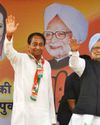
The Good Doctor Had His Problems
What we cannot ignore about Manmohan Singh
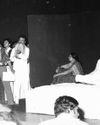
"THERE LIES MY COUNTRY"
Undoing nationalisms in Fahmida Riaz's exile writings
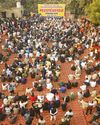
CAPITAL GAINS
The BJP's strategy to unseat the AAP in Delhi

Peeling the Layers
The philosophy behind The Savala Vada, India's The Onion
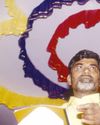
DRIVE TO SURVIVE
The discreet charm of Chandrababu Naidu
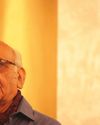
HOW TO SEE ART?
BN Goswamy's strategies of seeing
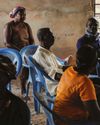
Bitter Crop
Ghana's cacao plantations in crisis
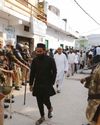
SURVEYORS OF DESTRUCTION
An atmosphere of fear persists in the wake of the Sambhal violence